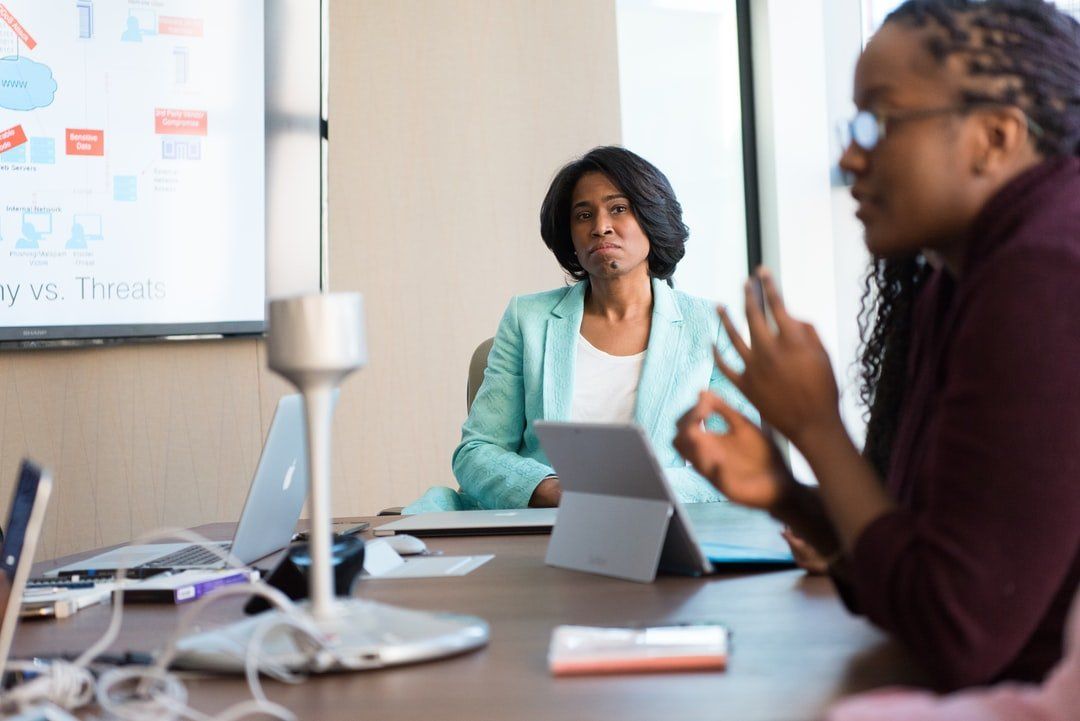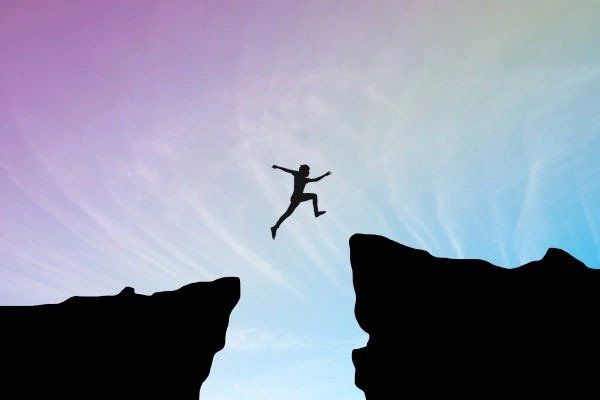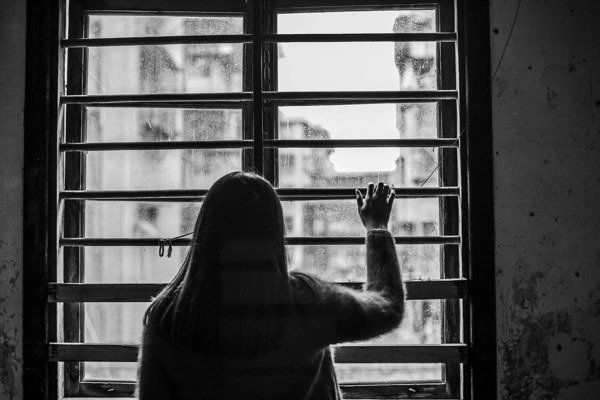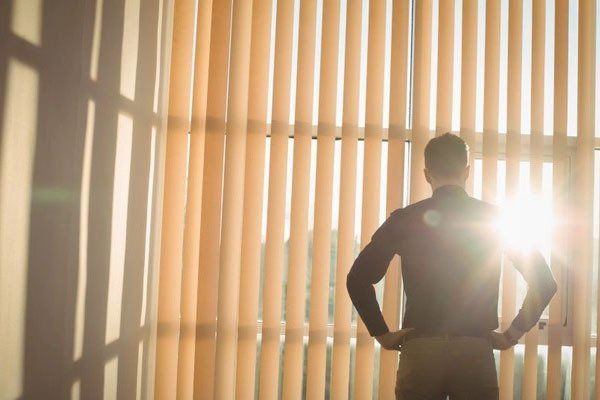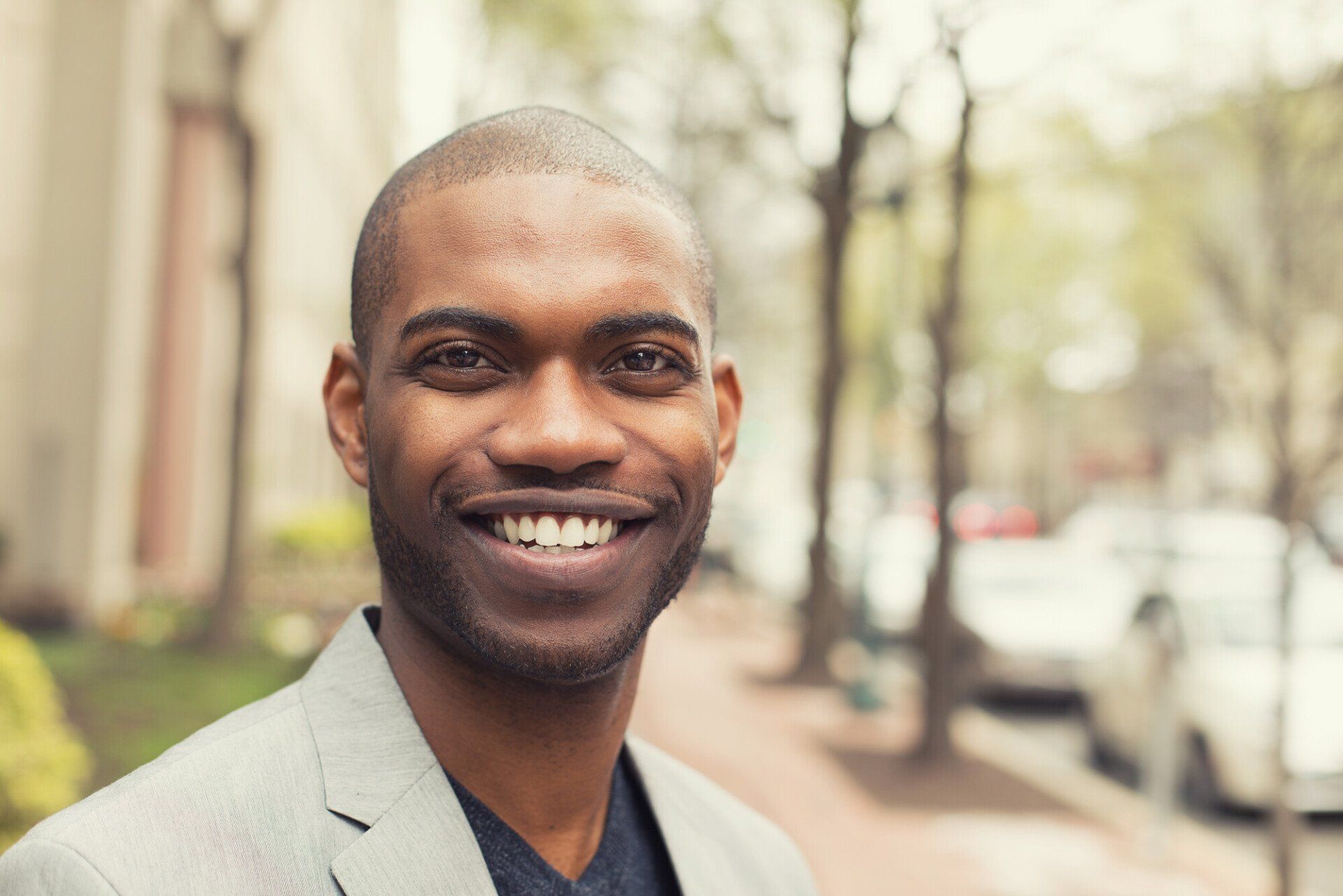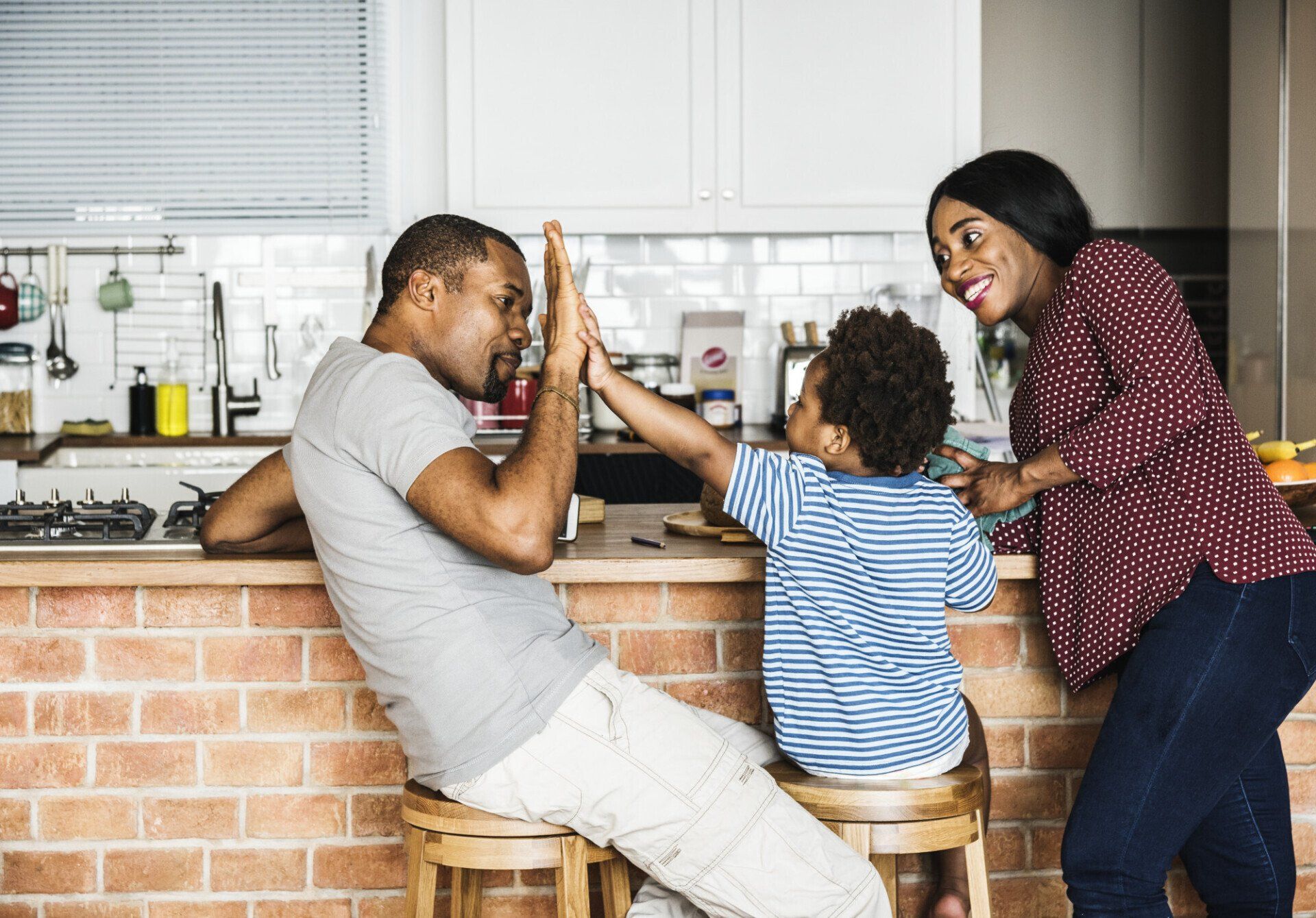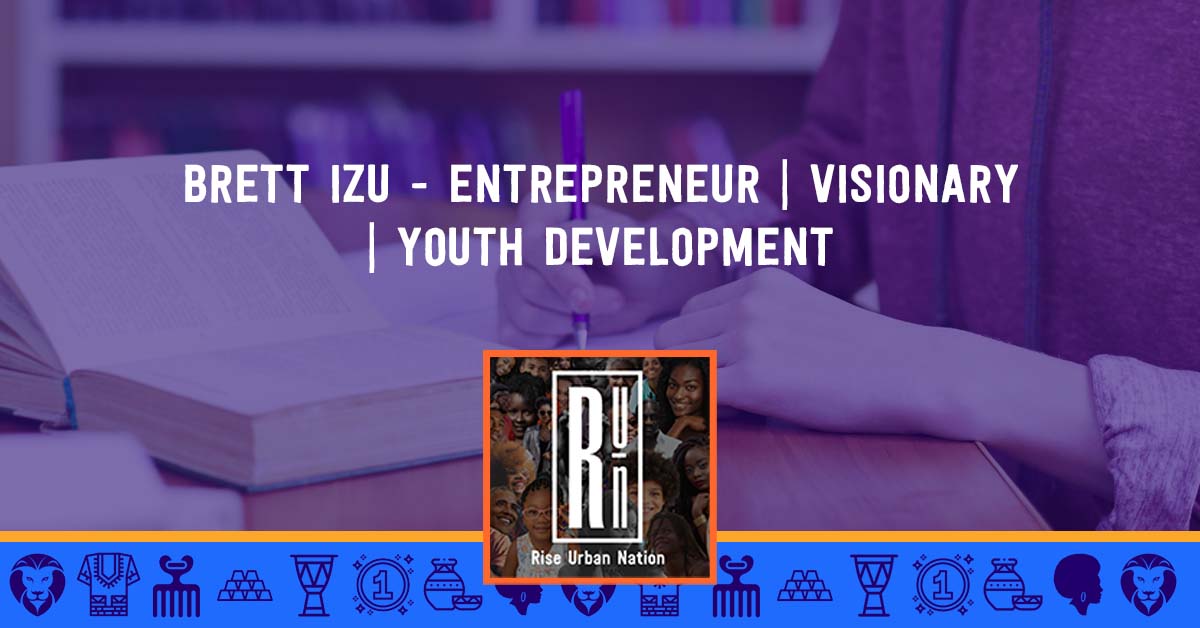Porshe Taylor - Founder Of FTIO (From The Inside Out)
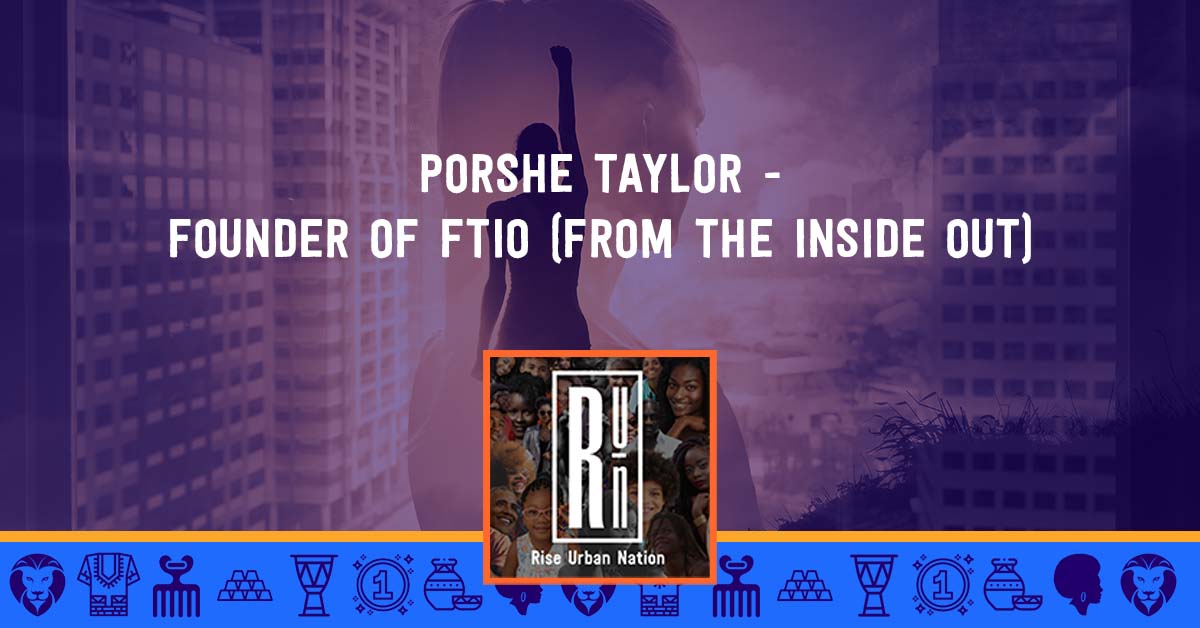
Self-improvement starts from the inside out. On the fast track of reaching her highest potential, Porshe Taylor has utilized her resources and willpower to overcome the obstacles in her life. At one point she felt chained down by her dependence on alcohol coupled with a 15-year cigarette habit. Porshe turned to God and broke free from the unyielding grasp of her addiction; her response was to fight and get free. When God removed the taste of alcohol from her tongue and relieved her craving for tobacco, Porshe finally found peace within. She completed therapy which helped to remove the veil of addiction from her eyes. This allowed Porshe to receive a message from God while she slept and as a result of that night’s encounter, she gave birth to FTIO (From The Inside Out) Starting with just a website. Porshe followed God's Instruction and began building her organization. Prison From The Inside Out Inc. now serves seven California prisons with rehabilitative self-help programs and are growing every day. Porshe Taylor is now the first African American woman to create a nonprofit organization that supplies correctional institutions with innovative and rehabilitative curriculums that have been approved and funded by the California Department of Corrections and Rehabilitation (CDCR).
---
Connect with Porshe:
Website: PrisonFtio.org
Email: PTaylor@from-theinside-out.com
Instagram: @PorsheTiara @prisonftio_inc
Facebook: @PorsheTiara
Mary Mac Transitional Homes: MaryMacHomes.com
---
We are currently surveying our listeners (or viewers) to learn more about you. Please take a few minutes and visit our website and click on the 'Listener Survey' link found on the home page. Thank you.
---
Listen to the podcast here:
Porshe Taylor - Founder Of FTIO (From The Inside Out)
We’ve got Porshe Taylor. She's the Founder of FTIO, which is From The Inside Out. Her story is incredible because she's on the fast track to reaching her highest potential and overcoming some of the obstacles that came into her life due to alcohol and cigarette habit. She was able to find healing in therapy and started to do this work with herself first, and then go into the prison system because her husband was a product of what happens in America when you get introduced to the prison system. It becomes an unhealthy cycle when it comes to families and the things that people have to overcome when getting out of the system.
She's one of the first African American women to create a nonprofit organization that supplies the correctional institutions with innovative and rehabilitated circumstances because we know the prison system in the US is not a rehabilitative type of system. She's doing her best to create those spaces to do that. Without further ado, let's get into the episode. Porshe Taylor from FTIO, From The Inside Out.
---
I have given our guest a brief update on my journey before we get into her journey. I love the walk home, Porshe. I’ve got to speak with her. Give us the backstory. How did you and I get introduced? Refresh the memory for the people who are reading.
The beautiful Xtina is the bomb and a mutual friend of ours. She is an amazing young woman who graciously intertwined us because she knew the amazing things that we could do if we conjoined, and here we are.
As Xtina says, “We’ve got to get all these lightworkers in together at some space at any point in time.” How did you meet Xtina?
The organization that I founded goes into prisons, and we are volunteer-based in regards to our facilitators who go into the prisons and run the programs for us. Xtina is one of our volunteers.
I might have come to do a session one of these days. As I gave you an intro, I wanted to do this episode to show all the amazing and brilliant people, specifically Black and African. I grew up in Washington, DC, when it was Chocolate City. In my neighborhood, there were Blacks, Africans, Jamaicans, and Dominicans, all of Black origin or descent.
I was raised by a Nigerian Black man. The interesting thing is I grew up in Nigerian and Black culture at the same time. Depending on how I showed up in different spaces is how people relate to me. I can say sometimes my Black American culture wasn't too kind when they thought I was Nigerian. It's like, “Get out of here. My booties scratch it.” My Nigerian culture is like, “I'm not Black enough to be part of that culture.” I don't know they are struggling.
It’s that in-between that all mixed children go through. You are not enough for either culture but you are both.
You go into school systems where they treat Black kids like you are not enough, and then not being enough all the way until I hit my mid-30s and 40s. I resonated with your story when you were talking about it on the radio show. I felt some of that journey, and I appreciated every single word you said, so I wanted to create this show. As I said before, to tell our stories, the ups and downs, the woes but mostly from a career and self-discovery journey because I feel like they are both intertwined. Do you feel the same way?
I 100% do.
I must start with a framework because what I used to tell the youth is it's not where you start but it's where you are going. They used to always have this negative connotation with their first job. I was like, “Your first job could teach you a lot of things if you are willing to learn from it that you could take to your career. What was your first job?
Looking back, my first job was in a little company called Teen Leaders of America. It was a job at the school. They would pick you up and drop you off to go door to door to sell garbage.
What is this selling garbage thing?
That's what I'm calling it but it was knickknacks that probably have very little value. We will go up to these doors but they had no rules. They gave you a little script but at the end of the result, the driver of the van, which was also your supervisor and was generally a young male. They made their money off of the money that we made. We were paid in cash daily. This job did have the potential to bring in a lot of money, and it did. I was making $200 to $300 a day as a thirteen-year-old. That was my first job.
What are some of the lessons that you learned from your first job that you took with you as you grew in your career in business?
I learned that I was a very good salesperson. I learned to be aware of pyramid schemes and to appreciate the value of self because that job taught me to embody my talents. What I contributed to that business was a trickle effect. That business is still active, so I don't want to down it because it's a good business for kids but the way that it was run at the time, I don't think it was super beneficial to kids. It did have a lot of good lessons, and I'm sure they cleaned up some of those areas now.
We can't rely on others to sustain the kind of lifestyle that we want to live.
That's what happens when you put young people in the leadership of other young people. You need to have more adult mentorship in those types of rooms. Fast-forward, I don't know how many businesses you own. Tell other people a little bit about what you do now and some of the things that you do in your current career or business.
I work full-time still. I work for the county that I live in. I have done so for several years but I am a multi-business owner. I own a successful commercial cleaning company. I am the Founder of a very successful nonprofit, and I opened a new business. It's a transitional home that runs in conjunction with the nonprofit that I have.
If you haven't learned anything from what she said is, 2021, you’ve got to have multiple streams of income. You can't be playing around in the streets. Take me through the process because you have the full-time and the business. How would you define your career at this point?
It’s just the beginning. That's how I define it.
From the business standpoint and going into the entrepreneurial side, what are some steps that you took to get into business to get your businesses up and running?
Going back, I will start with the cleaning company because it was first. On my own, I'm one of those, “Get out there and go kind of people.” When I want something, I am extremely driven. My husband is formerly incarcerated. He was back and forth using young adults before his incarceration term started. I had my own issues but once I became a parent, that was out the door for me.
It's hard for people who are formerly incarcerated to gain healthy employment that's going to last and pay well. I was like, “We’ve got to create our own.” If that's going to be the case, we can't rely on working for others. It is not going to sustain the lifestyle that we want to live. We created the cleaning business. I did my research.
There are priced companies that could help me because there are companies out there that if you are lacking the knowledge of what steps you need to take for yourself or your state for incorporating your business, insurance or whatever it is that you need. I researched a couple of companies. For the first business, I probably paid for a little bit of a higher package because I wasn't familiar with the documents and things like that. It's about jumping out there. To keep it short, don't be scared. Take the leap.
Sometimes you have to go out and take a leap of faith. Hopefully, that leap of faith will take you to the next step. Sometimes we spend so much time pondering the idea that we never get the idea.
I have talked to quite a few people who asked me, “How to get started or what to do?” I am one of those people that believe in pouring out blessings onto others. If I know, I'm an open book. I feel like God gives it to you so you can share it. You can tell people so much and then the next week is there. You know they are still there. I tell people all the time, “Stop thinking about it so much. Plan it, outline it, draft whatever it is you need to do, and then jump off that cliff.” Once you jump, there's no turning back.
Are you a big fan of getting out there, asking people or seeking mentorship if you don't know it? Is that your style?
I don't know because I'm also a very closing person. I know that mentorship is needed. Mentorship is necessary but I'm not a person who goes out and seeks a lot of mentorships, even though I should.
From hearing your testimony on the interview that we did, I believe that you have been a mentor to others, and people may have been mentored by you, not in the sense that they came to you to seek advice. They have followed your journey and your moves, your steps or read the show we did. They pick mentorship up from you that way. I do think you have it both ways but not in the way that you think. Did you sometimes find yourself looking at others’ journeys and picking up little things here and there from their journey and using that as inspiration and motivation?
I noticed very early at the beginning of my entrepreneurial career that it was definitely something that I did a lot, and that's because it's normal human nature to see someone in a position that you aspire to be in and be inspired by them. In the field that I'm in, I walked in as a person that is first and foremost impacted by incarceration. I had never been on the working side of it.
I had no knowledge of nonprofit room. I pretty much walked into this business blind led by God and knew I was blindfolded. To see other young people of color, Brown people, was inspiring. I look at their success as markers at certain points or when I first started. I plan to continue to find people that I can help.
I want to dive into that story a little bit more for people who don't know the story and who didn't see our interview on GODRadio1. In regards to the business of starting your nonprofit and the prison system, tell me the journey that got you there. What was the journey that you went on before you’ve got to the point of reflection and starting that business?
We talked about these on the other ones. I will drop some extra info that I didn't share there. My husband and I met as very young adults. We are 18, 19 years old. We were inseparable from day one. I was already in trouble, and he wasn't. He was a good person. He had some juvenile stuff. He got a fight at school being in the record. I was probably headed on a bad path and he was not.
It's normal human nature to see someone in a position that you aspire to be in and be inspired by them.
We ended up having our first baby at 20 and 21 years old, and we were doing good. We have got our first place together. We had three cars, both were working. We went out to a club one night, and we’ve got back to San Francisco. We’ve got back to our home where we live and go to sit at one of my cousin's houses.
Somewhere between the night, my husband and my cousin decided to leave and go get a Swisher from the store. On that route, they crashed, and my husband was driving intoxicated. He was held responsible for the death of my cousin that started his prison career, as it's called on my side of the working group. He’s sentenced to ten years. He ended up doing six of the years. That was his first-ever adult interaction with the criminal justice system.
That was a very traumatizing situation. It was very hard for my family and any adult. In general, my cousin and my husband were extremely close. Life was taken. It was lost. That was the longest at the beginning of my relationship with prison and the prison environment. My daughter, in my world, is known as the prison child. She was only ten months old. My husband has been incarcerated longer than he has been out here with us. He did that term. He got out. He made it off parole around 2013 or '14. He ended up catching another case, being on probation, doing smaller terms.
Somehow, we had to jump into this cycle of statistics of being prison life, prison child, repeat offender, a young Black woman, and single parent. It’s all of these statistics that come along with prison and being Black. This last journey that we had taken in 2018, 2019 was around the New Year. He had what's called a joint suspension.
At the time when he took the joint suspension, I don't think either one of us was aware of what it was but when you are about to go to jail, do six years and they say, “You can do 6 months instead of 6 years,” you take it in and run. Joint suspension is a very strict probation term the violation is 30, 60 or 90 days, where if you mess up at all, you get that term of six years or whatever they were holding above your head initially. It was a last chance thing.
My husband clearly wrecked his last chance. It was around the New Year of 2019. He went to jail, and in between there, we had a second child. She was young like the first one was. I was distraught. I was over the entire face and severely sucking into alcoholism. I was gone and a completely different person than I am now. I am a full-blown alcoholic.
Thank God I am in a different place. My birthday was at the end of January. I had already had a Mexico trip preplanned. I ended up going to Mexico. Prior to that, I had been praying because when you are that far gone with alcoholism, you don't even want to drink. You drink out of necessity because you have felt like you are going to die if you don’t.
I had planned this Mexico trip. I was going through all kinds of phases like depression. I know I was about to be single-parenting again for another six years. My one child was going to be a teenager. All the things you think about when incarceration happens. I went on the trip, and it was fun. It was a great trip, minus the fact that I was gone. I might as well not have been there.
I came back and was done. My body, mind, and soul were done. I don't think I could have gone on any longer. My soul was tired. I decided right there that I was going to check myself into rehab as soon as I’ve got back. Four days later, I was in rehab. That rehab changed my life. It was very informative. It wasn't the rehab that's like, “Stop drinking. We are here to provide pills or whatever you need, so you don't have withdrawals.” It was educational.
They had all kinds of holistic practices. We learned meditation and grounding techniques. It was dope.
It’s a very intense rehab but not fully living in rehab, and that's because I still had to take care of my two children. I went through the Kaiser Program, and it was super dope. I loved it. It was very attentive for a program that you had that you could go home at the end of the day. Meaning you still could get intoxicated very easily if you chose to.
They implemented many things to help you along the journey, and the things that were most important for me were the educational pieces that taught me why I was going through addictive things, what my brain was going through or why it had a lack of emotion towards things? All the chemical imbalances that the addiction has caused you.
That, for me, was probably lasted the longest out of the things that I learned besides the holistic practices like grounding, meditation, and artistic therapy. They had a host of things that we did while we were there. I would recommend their program to anybody who's struggling and serious because it is a choice. You have to make a choice and be ready.
Once I was midway through my journey of rehab, I started reading the Bible daily. I dove into my relationship with God and built it. I feel like I was in such a bad place that that's all I had to grab on to. I was fully in. When I was not doing something to stop myself from drinking that they had taught me, I was in the Bible, and that was my days for a couple of months.
With that, I was doing the decision, reading the Bible. It was me and God, and God and me. I did a reflection and meditation. I went to sleep and dreamed. I had a dream about what is now my very successful nonprofit. That dream gave me the push to build a business. I felt like it was a way for God to communicate with me and show me vision because it was something that was stamped into my brain, and ever since, my life has been different.
This gives me good context to the name of your nonprofit, From The Inside Out, because you went through therapy, reflection, meditation, and relationship with God from the inside out. Every time I hear you tell that story, I get goosebumps. It was supposed to originally be a website in your dream. How did it go from website to what it is now?
Something that came up in the last interview that we did, it's popped up in my mind a couple of times. This question leads directly to it. One of the questions that were asked was, “How do you fully submit yourself?” I gave a shell of the answer. One of the other cohosts, the one that was impacted by incarceration, gave such a wonderful in-depth answer about submission to God.
Something it brought up for me while he was explaining his version of submission, which was a wonderful light effect. It was being willing to face God in the moments where you get comfortable with what you are doing and the repetitive stages of submission, getting up, praying, and doing what you do. There's a stage where I believe you are comfortable and have to be willing to go outside of the box that you have been in to find God to search for your stronger relationship. That is something that I was practicing.
We should strive every day to learn to remain as humble as possible, especially as a person of influence.
I felt like I was in such a close place with God and with the Holy Spirit. My sister helped me do everything. I sat down and said, “I want to write to everybody on death row.” This was not only in California. I meant across the United States. We sat down and Wikipedia everybody on death row. I had to search out their name and department of correction numbers, which is their name for prison and addresses.
We drive mailed hundreds of people on death row. I wrote a letter, telling them my story, the dream, and that I wanted for them to share their story to bridge the gap. That was how we first started, and through doing that, I ended up meeting a young man named E’drick Brown. If you check out my website, his story is there written and on video. He’s an amazing young man, extremely talented, and unfortunately, very unfairly sentenced. He is serving a life sentence in the California Department of Corrections now. He is up for commutation.
I ended up meeting him and doing some heavy praying. I had been for a couple of days, I watched a lot of sermons online and preCOVID-19, I would watch sermons throughout the day to stay healthy. The first week prior to me meeting him, I kept on getting a sermon over about God putting a vision in front of you, and you do everything he says. He changes the vision, and you are like, “That's not what you said the first time.” It kept coming up. When I met the young man, automatically, I knew that he was the reason. I knew that I had to change my plan. What I thought that God had told me was a website into this next phase of it, which was for us, to offer rehabilitative self-help programs. E’drick Brown wrote the majority of FTI programs.
For everybody who's reading, who she's referring to in that question is Michael Dunn from Let's Talk About It on GODRadio1. He had a similar journey in recovery from alcohol. I helped to get him on an interview one of these days as well, too. That story speaks to you in a nutshell. Sometimes you’ve got to trust a journey and process, believe in God's plan, submit yourself too, and then he will remove all the barriers for you. He takes you to the next place where you need to be. What's one good life lesson or one good lesson life has taught you?
To always be a student. We should strive to learn every day to remain as humble as possible, especially as a person of influence, to jump in the backseat. You don't have to be the driver.
What's some advice you would give to someone who would like to start a career doing what you do in this industry, whether it's being a mentor, building a program, giving therapy to something around mental health and wellness. I feel like the work that you are doing encompasses all of that. What advice would you want to give to someone who would like to start a career in your industry doing some of the same work you are doing?
First and foremost, consult God, pray over your business, and give it to God. I always say, “This is not my business. I work for him. He tells me what to do.” After you get the green light in the criminal justice industry, it's very important to consult the people who are incarcerated first. We tend to walk in. If we are not a person that has been NSL or closely impacted, we want to inflict our opinions and thoughts on what's best for people who are going to be returning citizens.
We generally don't incorporate what they feel. If you are going to go and come into this business, talk to people who are impacted first and incorporate that with your ideas. As I said earlier, “Do your research, draw your outline and go take the leap of faith.” It's okay to mess up. If you fall, you know what not to do the next time. Get back up and do it again.
I resonate with all that, too. I do think we need to change the lens of how we look at our rehabilitative services because the rehabilitative service you went to is transformational, and that's what rehabilitation should be. I do not think our jail systems and so forth are set up to do that. If you look at what's going on in Norway and what they have been able to do, that's rehabilitative right there. Our system is not set up that way.
When I think about our communities and how they are impacted, if you see somebody that gets a DUI in a predominantly White wealthy community, they have true rehabilitation. They send them to therapy and these tranquil places to get the help and things they need. In our communities, we don't have that. You go do some jail time or they may send you over to this place but it's not rehabilitative or transforming.
We need to change the way we see that. I see a lot of movement also going in the news and that government of how they are trying to move the jail industry from being a private industry and so forth. When you look at the correctional industry and then the services you provide, what do you think the future has in store?
I am very involved in the political side, especially in the State of California and what goes on with the criminal justice system nationally or Federally. I wish we were more involved, and I plan on us being more involved. By saying Federal prisons, we do run programs outside of California. In regards to Federal prison-like private prisons, for instance, that is not a California being per se. California a few years ago, Gavin Newsom ended contracts with private prisons.
We had incarcerated people in Arizona all over the place because they had contracted prisons, and he pulled everybody back. All of our incarcerated population is on California soil. What they did do, however, is create a contract with that same company GEO and now they own all the transitional houses. I just found that out because I'm getting into the transitional housing business. I'm kicking down other doors because it's not impacted people that own these houses that are trying to help them. It's people that are profiting off of it.
With that being said, back to your question, for my particular industry, which is widespread at this point, I don't see prisons going anywhere fully closing down. I do see a large reduction coming, and that’s because reformists and advocates like myself, we are not going to let up. What we have going on in the United States as our prison industry doesn't work. It's a business at this point, and you have to call it out as such. We allow for far too long for people to create laws that they could benefit from. They created laws that caged people for profit.
Now, we are slowly but surely chipping and tearing down those laws that were created, which are allowing for more people to be released. On my end, I am trying to develop things like transitional housing. I'm trying to develop resources outside because we can't be trying to pull people from the cage and not help them reacclimate into society. I don't plan on us going anywhere. What we do is needed. What I do plan on is being actively sourced, funded, and as far away from possible as CDCR. It's very hard to work and do things to want to help the people and be against the company that you are working directly with.
I understand the bureaucracy. You don't have to say anymore. What projects are you working on, and where can people find you?
We opened the transitional house. We are trying to stabilize there but my next goal, because I'm a next-next kind of girl, is to bring the programs outside. To have regular community members, be able to sign up, take our programs and enjoy the fruits of what we have to offer. That's something that we are building the skeleton of and looking at how it could work. We are looking at working with Xtina on that and bringing some of her healing practices in. I’m super excited about that.
I love all the work Xtina is doing. I wish I could bring on a show but this is not her platform but I brought her on GODRadio1.
My organization can be found on all platforms under @PrisonFTIO_Inc. I can be found on IG and Facebook under @PorsheTiara.
Any other things that you want to give to the people before we sign off?
Everybody, stay blessed, safe, and COVID-19 free.
Ms. Taylor, it has been an honor and a pleasure to be in your presence, your company, and your story. I appreciate you so much. You truly are an inspiration and a gift to our community. I wish you nothing but success. I can't wait to see what this grows into. Keep doing, pushing, and whenever you need anything, you’ve always got a brother in me. Thank you.
Thank you.
Ladies and gentlemen, this has been another episode. If you are not following and supporting this woman, don't make me jump through to shake you up. I will see you on the other side.
Important Links:
- FTIO
- GODRadio1
- Kaiser Program
- Interview - Past Episode
- E’drick Brown – YouTube
- Let's Talk About It - Facebook
- GEO
- Xtina Geri – Facebook
- @PrisonFTIO_Inc - Instagram
- IG – Porshe Tiara
- @PorsheTiara - Facebook
- PTaylor@from-theinside-out.com
- MaryMacHomes.com
About Porshe Taylor
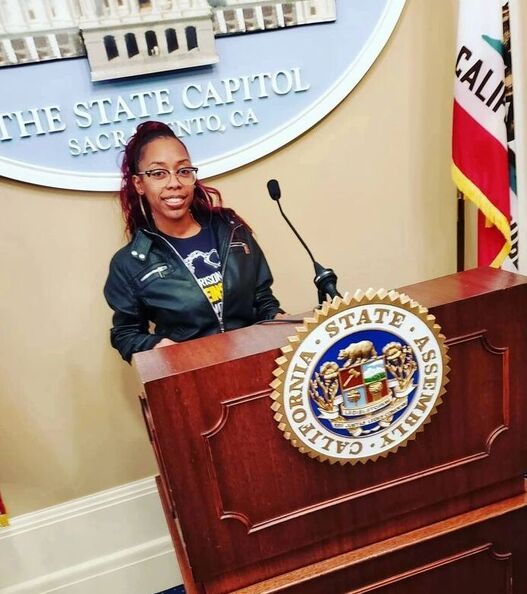
On the fast track of reaching her highest potential, Porshe Taylor has utilized her resources and willpower to overcome the obstacles in her life. At one point she felt chained down by her dependence on alcohol coupled with a 15-year cigarette habit. Porshe turned to God and broke free from the unyielding grasp of her addiction; her response was to fight and get free. When God removed the taste of alcohol from her tongue and relieved her craving for tobacco, Porshe finally found peace within. She completed therapy which helped to remove the veil of addiction from her eyes. This allowed Porshe to receive a message from God while she slept and as a result of that night’s encounter, she gave birth to FTIO. Starting with just a website, Porshe followed God's Instruction and began building her organization.
Porshe Taylor is now the first African American woman to create a nonprofit organization that supplies correctional institutions with innovative and rehabilitative curriculums that have been approved and funded by the California Department of Corrections and Rehabilitation (CDCR).

